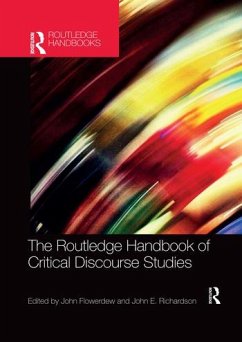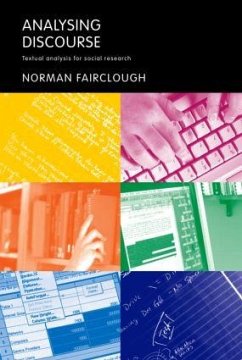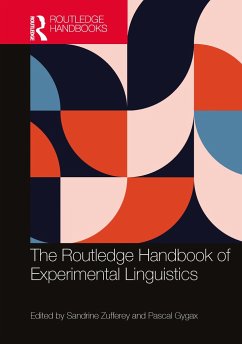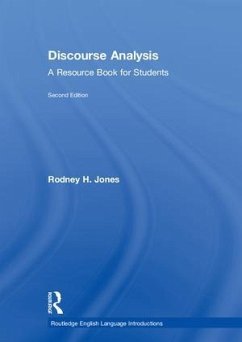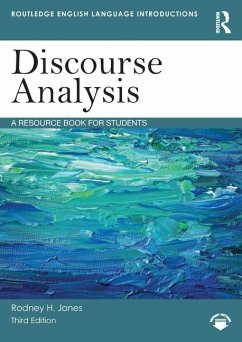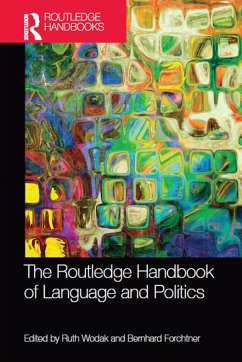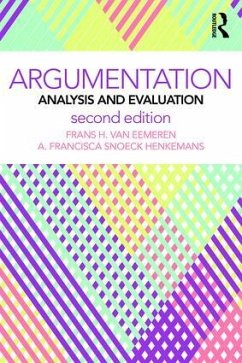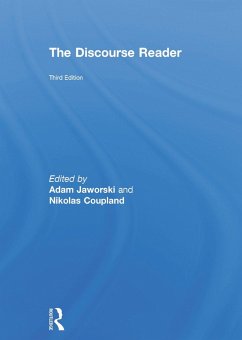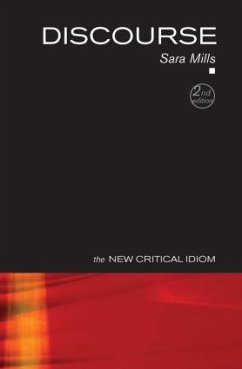
Political Discourse Analysis
A Method for Advanced Students
Versandkostenfrei!
Versandfertig in 6-10 Tagen
46,99 €
inkl. MwSt.

PAYBACK Punkte
23 °P sammeln!
In this accessible new textbook, Isabela and Norman Fairclough present their innovative approach to analysing political discourse.Political Discourse Analysis integrates analysis of arguments into critical discourse analysis and political discourse analysis. The book is grounded in a view of politics in which deliberation, decision and action are crucial concepts: politics is about arriving cooperatively at decisions about what to do in the context of disagreement, conflict of interests and values, power inequalities, uncertainty and risk.The first half of the book introduces the authors' new ...
In this accessible new textbook, Isabela and Norman Fairclough present their innovative approach to analysing political discourse.
Political Discourse Analysis integrates analysis of arguments into critical discourse analysis and political discourse analysis. The book is grounded in a view of politics in which deliberation, decision and action are crucial concepts: politics is about arriving cooperatively at decisions about what to do in the context of disagreement, conflict of interests and values, power inequalities, uncertainty and risk.
The first half of the book introduces the authors' new approach to the analysis and evaluation of practical arguments, while the second half explores how it can be applied by looking at examples such as government reports, parliamentary debates, political speeches and online discussion forums on political issues. Through the analysis of current events, including a particular focus on the economic crisis and political responses to it, the authors provide a systematic and rigorous analytical framework that can be adopted and used for students' own research.
This exciting new text, co-written by bestselling author Norman Fairclough, is essential reading for researchers, upper undergraduate and postgraduate students of discourse analysis, within English language, linguistics, communication studies, politics and other social sciences.
Political Discourse Analysis integrates analysis of arguments into critical discourse analysis and political discourse analysis. The book is grounded in a view of politics in which deliberation, decision and action are crucial concepts: politics is about arriving cooperatively at decisions about what to do in the context of disagreement, conflict of interests and values, power inequalities, uncertainty and risk.
The first half of the book introduces the authors' new approach to the analysis and evaluation of practical arguments, while the second half explores how it can be applied by looking at examples such as government reports, parliamentary debates, political speeches and online discussion forums on political issues. Through the analysis of current events, including a particular focus on the economic crisis and political responses to it, the authors provide a systematic and rigorous analytical framework that can be adopted and used for students' own research.
This exciting new text, co-written by bestselling author Norman Fairclough, is essential reading for researchers, upper undergraduate and postgraduate students of discourse analysis, within English language, linguistics, communication studies, politics and other social sciences.





